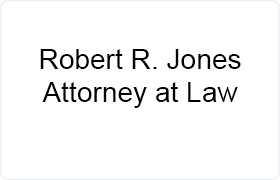Highlands Misdemeanor Lawyer, Texas
Sponsored Law Firm
-
 x
x

Click For More Info:
-
Robert R. Jones Attorney at Law
3526 E. FM 528 Suite 204 Friendswood, TX 77546» view mapCriminal Defense Expert Representation for Reasonable Rates
If you need representation, call me 24/7.
800-883-8760
Marshall Douglas Murphy
DUI-DWI, Criminal, Misdemeanor, Felony, White Collar Crime
Doug Murphy: Renowned Board Certified Criminal Law & DWI Specialist Serving Houston, Texas
Doug Murphy stands as a prominent figure in the legal realm of Houston, Texas, with a focus on Criminal Law and DWI Defense. His career, which began i... (more)
Tamara Renee Gaines
Bankruptcy, Misdemeanor, Divorce & Family Law, Lawsuit & Dispute, Landlord-Tenant
Status: In Good Standing *Status is reviewed annually. For latest information visit here Licensed: 25 Years
Mark W. Bennett
Felony, Misdemeanor, White Collar Crime, Federal Appellate Practice, Domestic Violence & Neglect
Status: In Good Standing *Status is reviewed annually. For latest information visit here
Jonathan Julio Vela
Personal Injury, Criminal, Misdemeanor
Status: In Good Standing *Status is reviewed annually. For latest information visit here Licensed: 5 Years
David L Singer
White Collar Crime, Misdemeanor, Felony, DUI-DWI
Status: In Good Standing *Status is reviewed annually. For latest information visit here Licensed: 42 Years
FREE CONSULTATION
CONTACTThomas Nave Kiehnhoff
Traffic, Lawsuit & Dispute, Immigration, Employment, Misdemeanor
Status: In Good Standing *Status is reviewed annually. For latest information visit here
Kenneth David Hughes
Military, Litigation, Employee Rights, Misdemeanor
Status: In Good Standing *Status is reviewed annually. For latest information visit here Licensed: 38 Years
David R. Lee
Misdemeanor, Felony, DUI-DWI, Criminal
Status: In Good Standing *Status is reviewed annually. For latest information visit here Licensed: 41 Years
Mary E. Conn (Mary)
Misdemeanor, DUI-DWI, Criminal, Criminal
Status: In Good Standing *Status is reviewed annually. For latest information visit here Licensed: 40 Years
Mark J. Ash
Food & Drug Administration, Misdemeanor, Felony, Felony, DUI-DWI
Status: In Good Standing *Status is reviewed annually. For latest information visit here
 Robert Jones Friendswood, TX
Robert Jones Friendswood, TX AboutRobert R. Jones Attorney at Law
AboutRobert R. Jones Attorney at Law Practice AreasSpecializations
Practice AreasSpecializations
